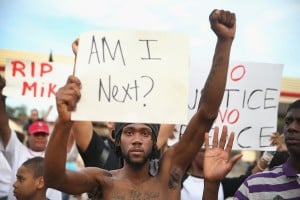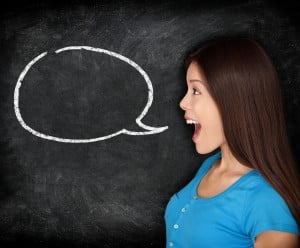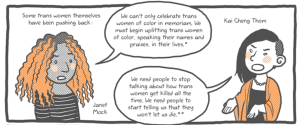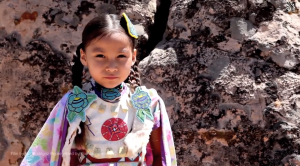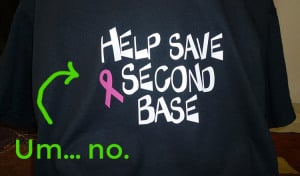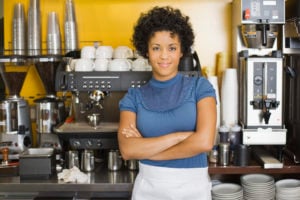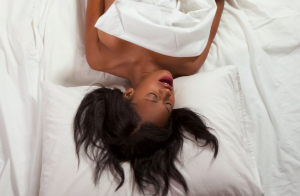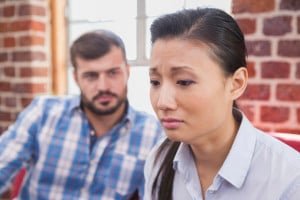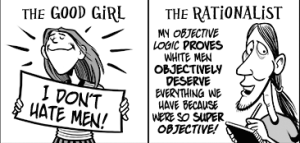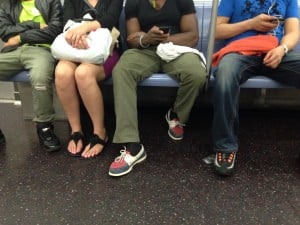KIJANA WINCHESTER: I remember not knowing what “gay” was, but that he was different.
KHALIL EDWARDS: The first time that I thought that I might be gay was actually in the eighth grade.
BERYL “BJ” JONES: I remember when I was twelve years old in the Girl Scouts, I had the biggest crush on somebody. I remember really wanting to put my arm around this girl’s waist.
TYRONE WATERS: Everybody in the family embraced me. I feel very blessed that they accepted me when I came out.
AVEL GORDLY: I think he was 16 or 17, and he shared with me one day that he identified as gay. I remember just putting my arms around him and saying, “You’re mine. We’ll just go forward.”
TYRONE: I felt a release.
KIJANA: He always had a friend, a special friend that I noticed that he was talking on the phone a lot. One day he asked me to go to the mall, he was actually going to meet up with this friend. Long story short, he ended up going his way, and me and my brother were still at the mall, and I was like, “So, Khalil. He’s gay. Are you gay?” No, I didn’t even ask. “You are gay.”
Khalil said, “Yes.” He told me he was. From there on, it was—it was always love because it was love from the beginning. Our relationship was built on love.
KHALIL: In the Black community, as in other communities, there’s a long way to go towards erasing homophobia. That has been probably one of the hardest things that I’ve had to deal with.
BJ: When I came out, my family was quite unaccepting. I had a child by that point. When my daughter was born, I moved a couple of times for my job, and all of a sudden I got a subpoena for custody of my daughter. This is back in the 80s, so understanding that I had no rights. So my mother had custody of my daughter, and my mother raised my daughter.
I think I’ve lost my daughter. I know I have. I’ve lost a grandson as well. Yes, I do have a grandson that I’m not allowed to see. That’s the way it is. So everybody loses.
AVEL: Frankly, there have been times when I’ve been afraid for Ty. This could be a hostile walk in the Portland community just being Black and male, so to be Black and male and gay adds to the fear that I’ve felt sometimes for his safety.
And at the same time, I know that he is part of a community that has embraced him. Our church family, of course, has embraced him.
TYRONE: Having a pastor that is loving, caring, nonjudgmental is very important to me. It makes me feel warm, welcomed, accepted.
AVEL: There is a stereotype still operating about the African American church being an unwelcoming place for gay and lesbian folk, and I want to call it for what it is: I think it’s a stereotype. I mean, every church has got gay people in it! They’re sitting in the pews, they’re in the choir, they’re playing the music, they may even be preaching! So it is a stereotype and we need to call it for what it is and keep breaking it down.
KHALIL: I think it took some time for me to really try to reach out and find places that were open, accepting, affirming, and understanding that true faith is all about love.
BJ: I’m African American. I’m gay. I live in a highly Caucasian community, and I must be able to operate or at least function in all of those. I’m blessed, in fact, that I live in a community that cares. I’ve got all three!
AVEL: We come from a family of community builders. And what I want for our family is that they be able to thrive. That we are a part of building what Martin Luther King, Jr. called Beloved Community, a community that embraces all of its people and the potential of all of its people.
BJ: Well the fact that I’m 67 years old means that I’ve gone through the African American movement with Dr. King, and I’ve also gone through — and am still going through — the movement with gays.
We’re moving. We’ve got a long way to go. We should be very positive about that. We need to be patient, but not too patient.
KIJANA: Everyone wants the same thing, and that’s equality of life — to be accepted and to be able to just be free and just to love and support that. If nothing else, support that.
For all the families out there, erasing homophobia starts with you. To accept me, you have to accept him. And that’s really how I stand on it and I always have.
KHALIL: Having that support, it’s immeasurable.
KIJANA: To have a wonderful brother, it means the world to me. And it just so happens that he’s gay.
AVEL: What I love about Ty…two things: courage and intelligence. Intelligence and courage. That’s Ty.
TYRONE: I’m just thankful of all the support that she has given me over the years, being a mom and a friend, and someone that cares and tries to understand.
BJ: We are some of the most spiritual people that I know and that probably there is. Because of that spirit, we can be the most energetic, the most forceful communities out there. We love you. Love us back.






